Teacher Professional Development Programs
Professional Development programs are available for science and mathematics teachers from K-12, as well as for STEM graduate students and university faculty members. Lead by a team of professional developers with over 20 years of experience, these programs employ research-based teaching practices. Programs are available in a variety of formats and can be custom-designed to meet the needs of schools and districts. For more information or to schedule a professional development program contact the Office of STEM Teaching Activities.
Constructing scientific explanations provides a learning experience in which learners make sense of science ideas. Developing scientific explanations based on evidence and supported with scientific reasoning is fundamental to accomplishing the practices of science in the classroom. When teachers engage students in developing scientific explanations, and the sense-making it requires, students are actively accomplishing most, if not all, of the practices of science. The students become active learners engaged in “figuring things out” rather than passive learners and this has been shown to provide deeper understanding and retention. Finally, these skills are foundational to writing in science. In this workshop, teachers will engage in activities to explore how to work with students to develop claims, support them with evidence, and provide the reasoning that ties the evidence to the claim and to science concepts and principles that they are teaching in class. Workshop activities include engaging in classroom exemplars, unpacking the teaching moves this practice of science teaching requires, and reflecting on how this accomplishes teaching for sense-making. This workshop can be structured for either primary or secondary science teachers. |
 |
In our increasingly data-driven society, data literacy is an important civic skill to be developed in our learners--and what better place to develop these skills than in science class. In addition to its importance as a civic skill, learners can engage in more meaningful science learning experiences from K-12 by using data to connect school subjects with real-world events. Further, there are more-and-more large data sets becoming available for teachers to use in the exploration phase of their science lessons. In this workshop, participants will engage in a science exemplar lesson that also explicitly teaches data literacy. Participants will examine and reflect upon the data literacy components of the lesson and how they were “scaffolded” throughout the lesson. Participants will then engage in an activity in which we develop a learning progression for teaching data literacy skills across the grades, beginning with primary grades and working through the secondary grades. |
Scientific modeling is a core practice in science whereby scientists represent evidence-based explanations for natural phenomena, models, and use them to generate predictions and drive further research. Just as with scientists, modeling can help learners in science classrooms represent their ideas about scientific phenomena and revise and advance those ideas throughout the unit. Through models based inquiry (MBI) teachers can implement all eight practices of science. This workshop will engage participants in an MBI exemplar of teaching and then examine the pedagogy underpinning it drawing on what teachers just experienced. |
GEMS curricula are a suite of more than 75 math and science units developed by Lawrence Hall of Science at the University of California-Berkeley. OSTA is a regioanl GEMS Center.
GEMS workshops are designed to introduce K-5 and 6-8 grade teachers to GEMS curricula and to the research-based teaching practices that underpin them. Teachers learn student-centered teaching practices by participating in GEMS science and mathematics units and then comparing and contrasting them with traditional teacher-centered teaching practices. This serves as an introduction to teaching practices that support the Common Core State Standards for mathematics and the national Next Generation Science Standards. Half-day, one-day, two-day, and three-day workshop formats are available. |
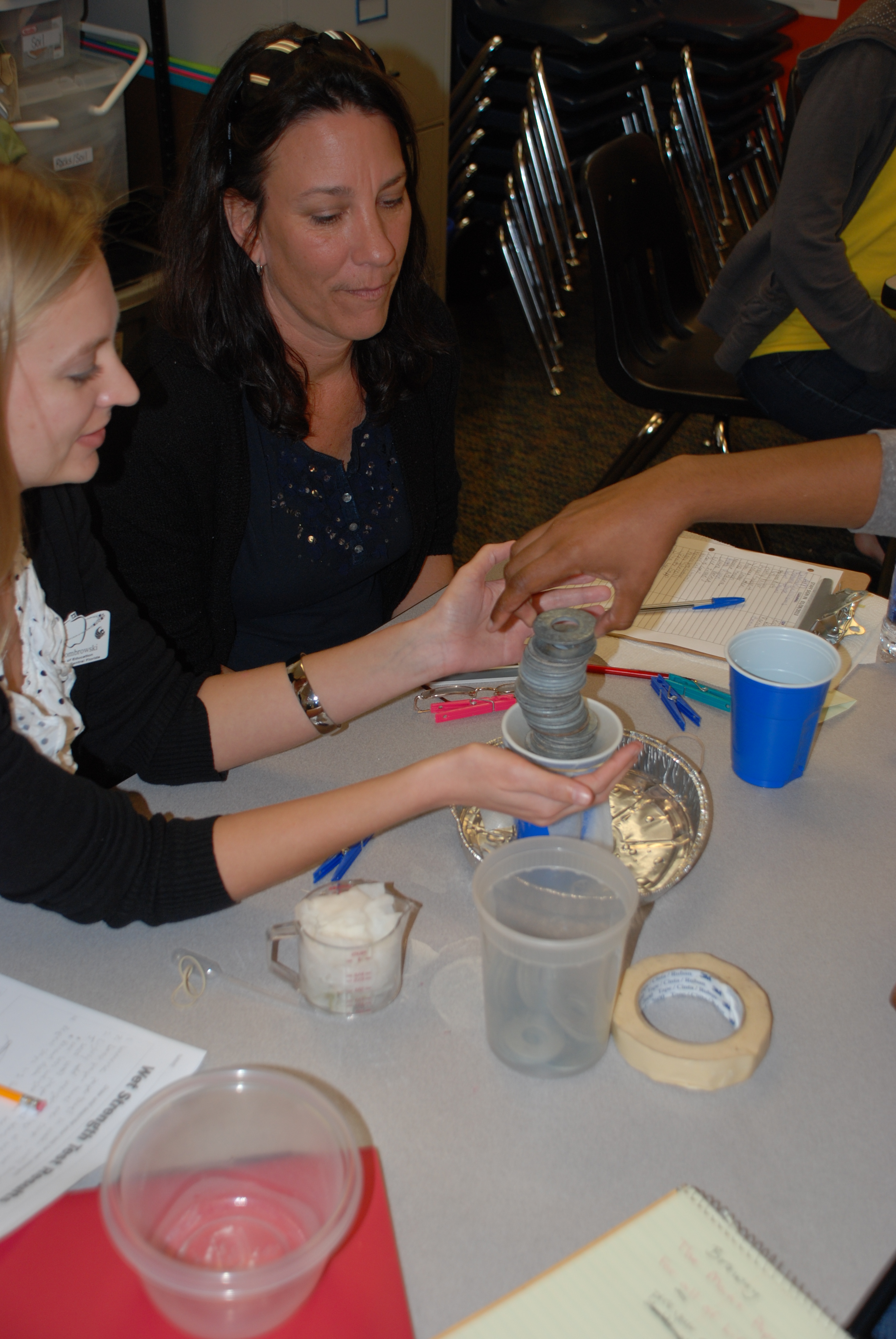 |
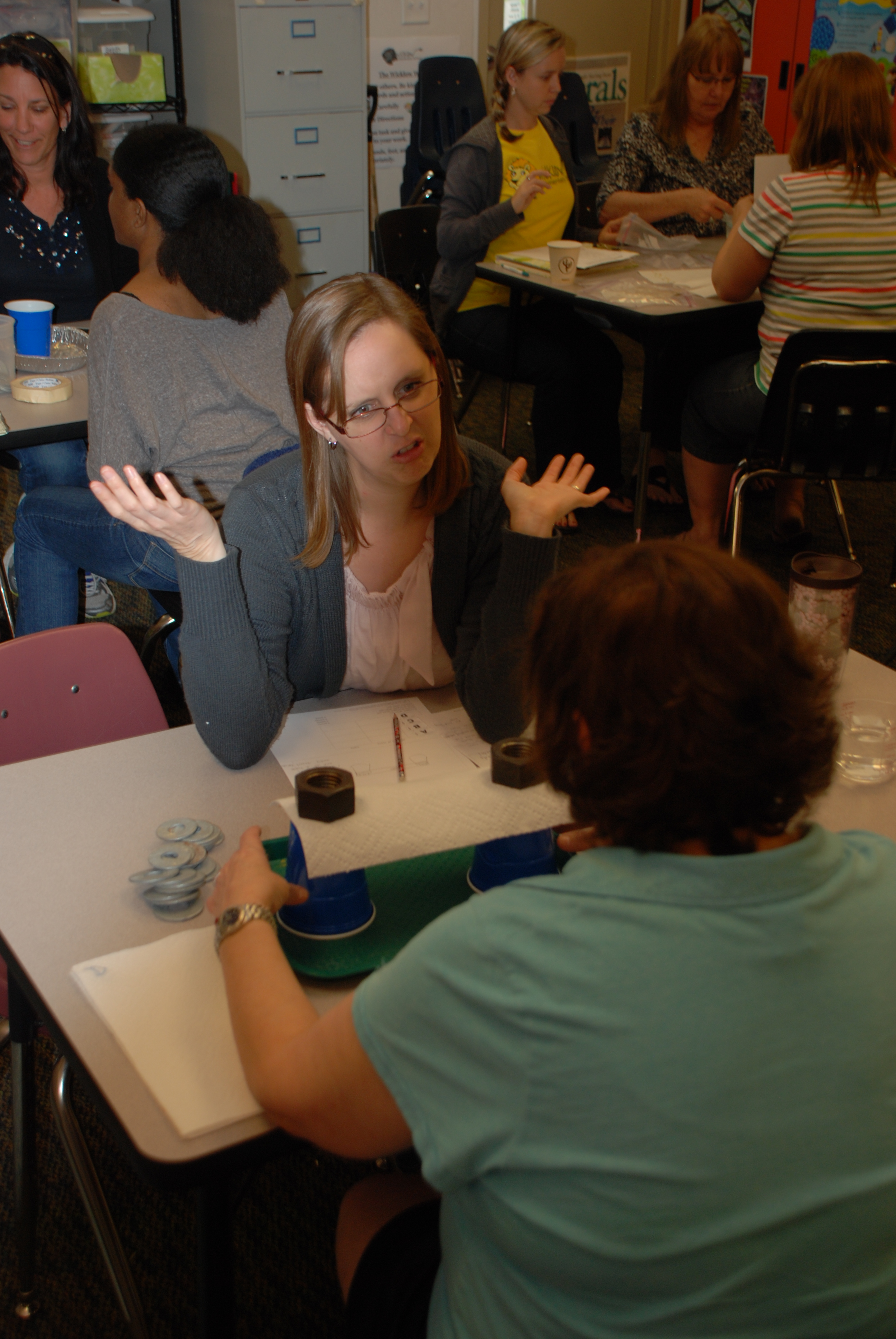 |
Communicating Science introduces participants (teachers from K-20) to a series of effective, instructional practices using research-based science curricula as exemplars of important educational strategies in science teaching. In each of its sessions, research-based theoretical aspects of teaching are interwoven with practical lesson applications. Through experiencing activities designed for students, participants examine and analyze a variety of best practices in science teaching, and learn more about the instructional strategies that underpin them. A particular focus of the workshop is science discourse in the classroom. Teaching practices from this workshop support the science proficiencies called for by the National Research Council and upon which the national Next Generation Science Standards are built: |
Students who are proficient in science:
- Know, use, and interpret scientific explanations of the natural world
- Generate and evaluate scientific evidence and explanations
- Understand the nature and development of scientific knowledge
- Participate productively in scientific practices and discourse.
National Research Council, Taking Science to School (2007) pp. 2
(This workshop is based on professional development curricula from Lawrence Hall of Science, University of California-Berkeley.)
| The Nature and Practices of Science is an intensive educational experience designed to deepen the science teaching knowledge and practice of its participants (teachers from K-20). Instructional activities are used as exemplars of important educational strategies for teaching through inquiry and about the nature and practices of science. The theoretical aspects of teaching are interwoven with practical lesson applications. Participants examine and analyze a variety of research-based best practices in science teaching that place them on the cutting edge of science teaching. |
 |
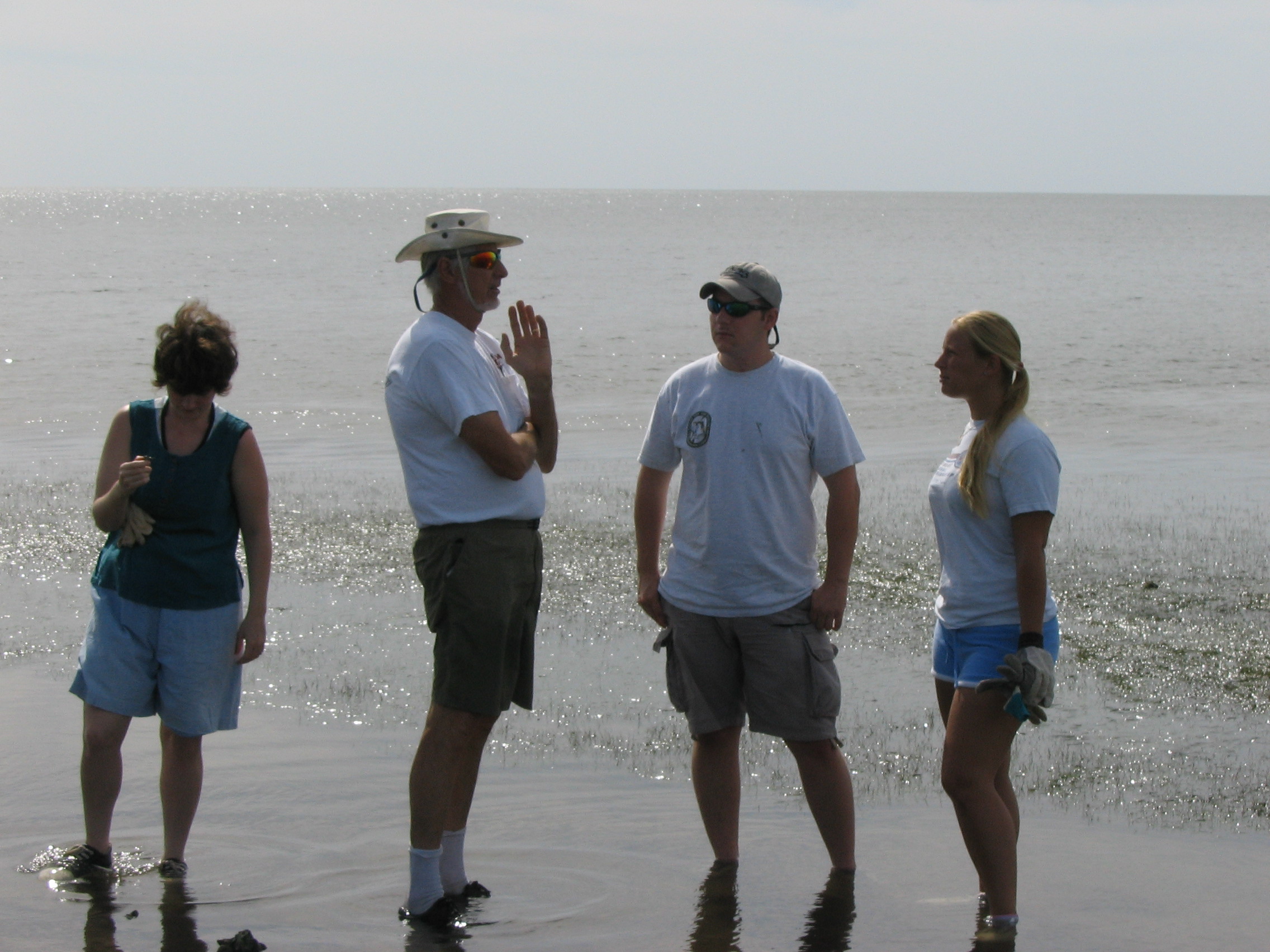 |
Supporting classroom discourse is a powerful teaching strategy and a critical component of science and mathematics teaching. Participants learn to use questioning and student reflections about activities and experiences to develop and refine the concepts they are teaching. Questioning and responding in the classroom to engender critical thinking is an art, but one that can be honed through strategies developed through the activities in this workshop. Participants will learn to balance the amount of asking and telling through carefully sequenced questions and thoughtful responding. As well, they are introduced to tools and scaffolds to help them in this process. |
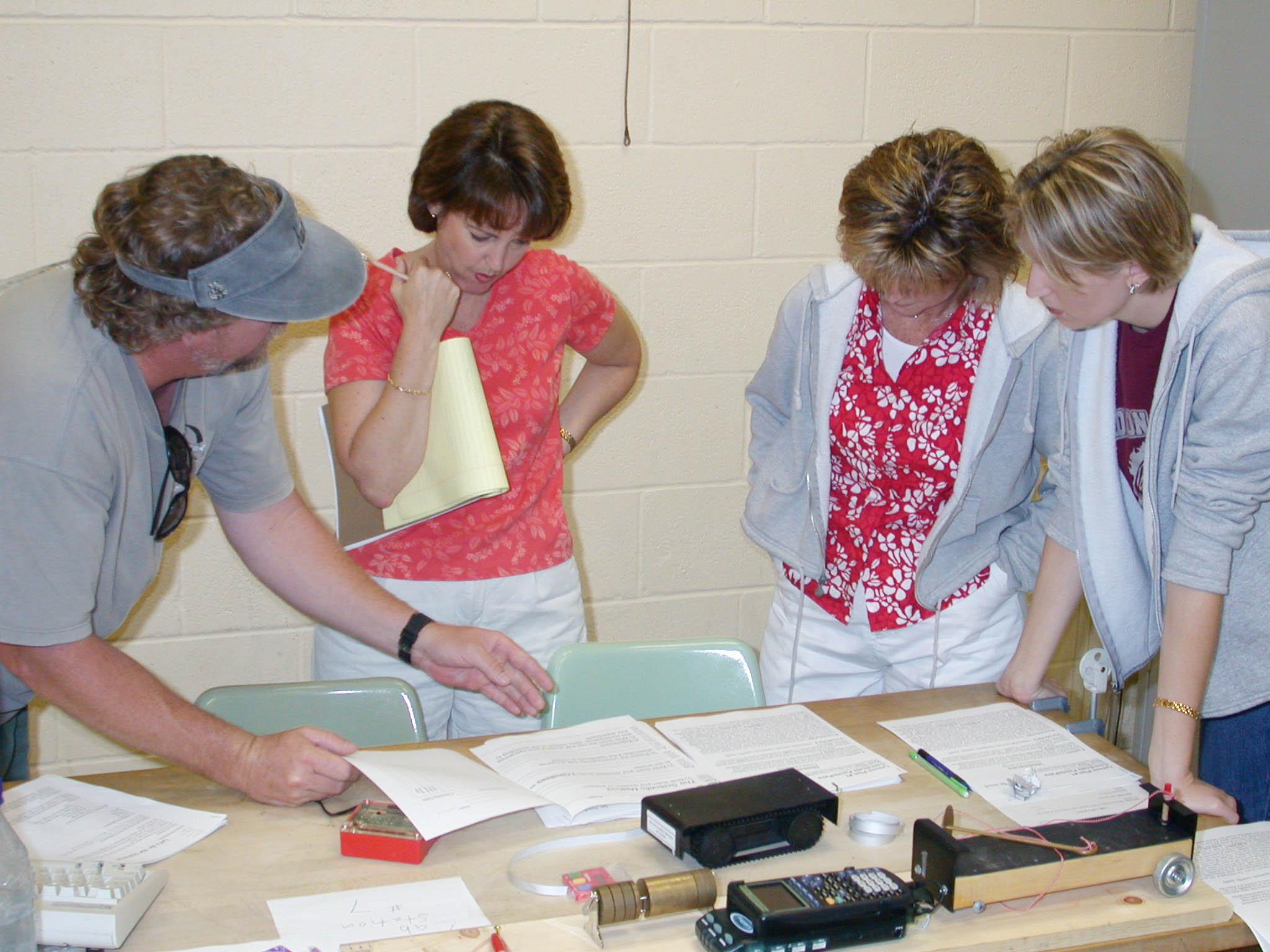 Analyzing mathematics and science tasks for their level of cognitive demand is an important professional development tool for math and science teachers. This professional development experience introduces participants to the effective Task Analysis technique developed by mathematics researchers Mary Kay Stein and Margaret Smith* as a way to evaluate classroom activities based on how much thinking they require of students. Once they have mastered this technique, teachers can use it as a template to assess their own instructional activities on a regular and continuing basis and to institute changes based on their results. Teachers who are employing high-cognitive demand tasks are more likely to develop the depth of understanding in their students called for by the Common Core State Standards for Mathematics and the national Next Generation Science Standards. Analyzing mathematics and science tasks for their level of cognitive demand is an important professional development tool for math and science teachers. This professional development experience introduces participants to the effective Task Analysis technique developed by mathematics researchers Mary Kay Stein and Margaret Smith* as a way to evaluate classroom activities based on how much thinking they require of students. Once they have mastered this technique, teachers can use it as a template to assess their own instructional activities on a regular and continuing basis and to institute changes based on their results. Teachers who are employing high-cognitive demand tasks are more likely to develop the depth of understanding in their students called for by the Common Core State Standards for Mathematics and the national Next Generation Science Standards. |
| (*Stein, M.K., Smith, M.S. 1998. Mathematical Tasks as a Framework for Reflection: From Research to Practice. Mathematics Teaching in the Middle School. 3:268-275.) |
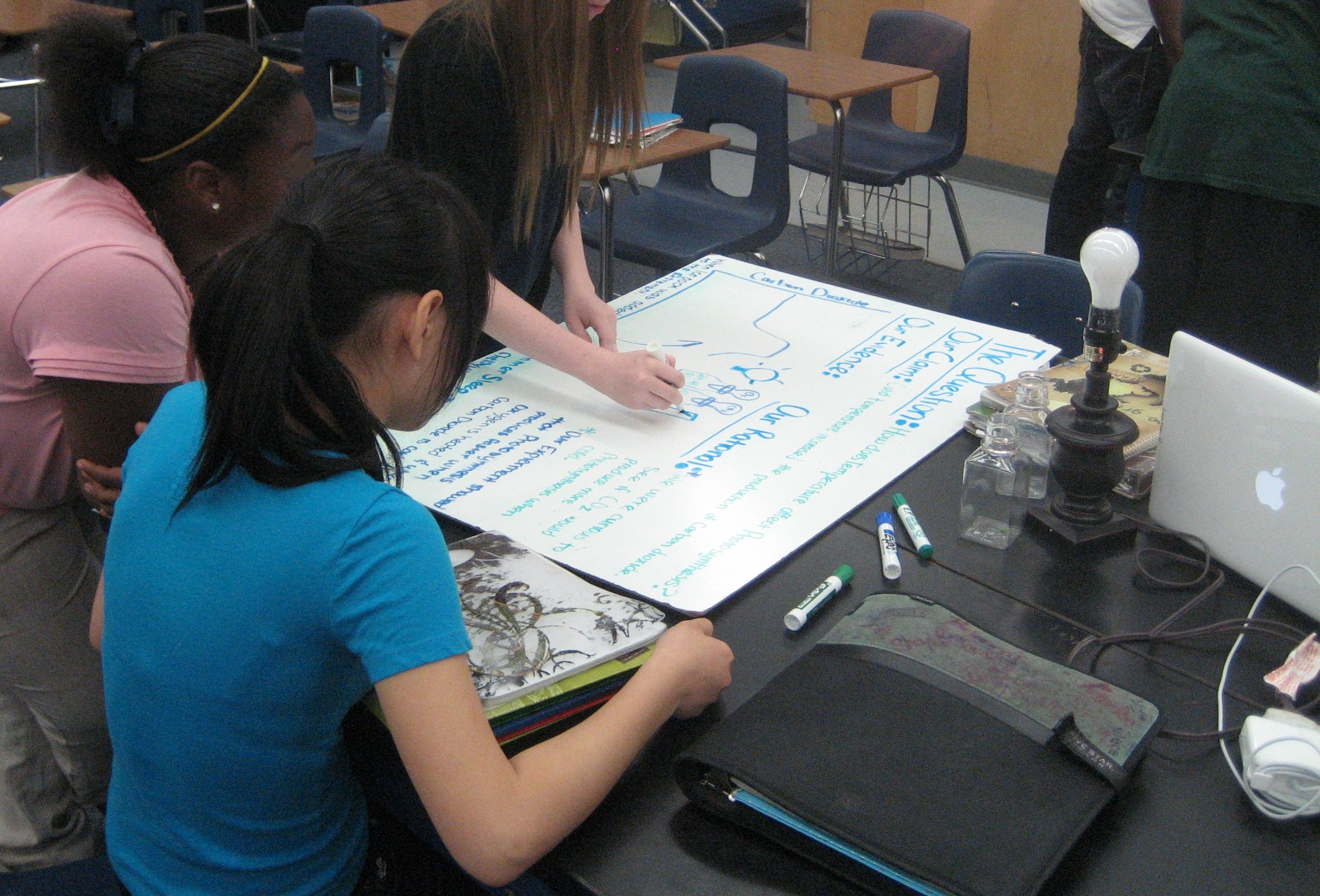 Teachers will need to change how they teach science to develop science proficient students and meet the national Next Generation Science Standards. Science activities and experiences will need to be more authentic so that students have the opportunity to engage in the practices of science, including scientific thinking. This professional development experience introduces teachers to a way to help their students learn to develop scientific explanations and engage in argument from evidence. The pedagogy and teaching moves that underpin this are then analyzed as teaching practices. In scientific explanation and argumentation activities, teachers must take on a new role, one that may be unfamiliar to many of them, and this workshop will help prepare them to do so. Teachers will need to change how they teach science to develop science proficient students and meet the national Next Generation Science Standards. Science activities and experiences will need to be more authentic so that students have the opportunity to engage in the practices of science, including scientific thinking. This professional development experience introduces teachers to a way to help their students learn to develop scientific explanations and engage in argument from evidence. The pedagogy and teaching moves that underpin this are then analyzed as teaching practices. In scientific explanation and argumentation activities, teachers must take on a new role, one that may be unfamiliar to many of them, and this workshop will help prepare them to do so. |
| Lesson Study is teacher-lead professional development that is ongoing, collaborative and practiced in teachers' classrooms with their own students. It is increasingly gaining recognition in the U.S. as a way for teachers to develop their practice. In the words of well-known lesson study researcher, Catherine Lewis*, "...lesson study is a cycle in which teachers work together to consider their long-term goals for students, bring those goals to life in actual 'research lessons', and collaboratively observe, discuss, and refine the lessons." This workshop introduces its participants to lesson study. Through it teachers learn how to take a research stance toward their practice through inquiry, reflection, and critical examination of lessons; build collaboration and a learning community stance with their colleagues; and, develop a lifelong learning stance in which members of their learning community support each other in honing their teaching craft. |
|
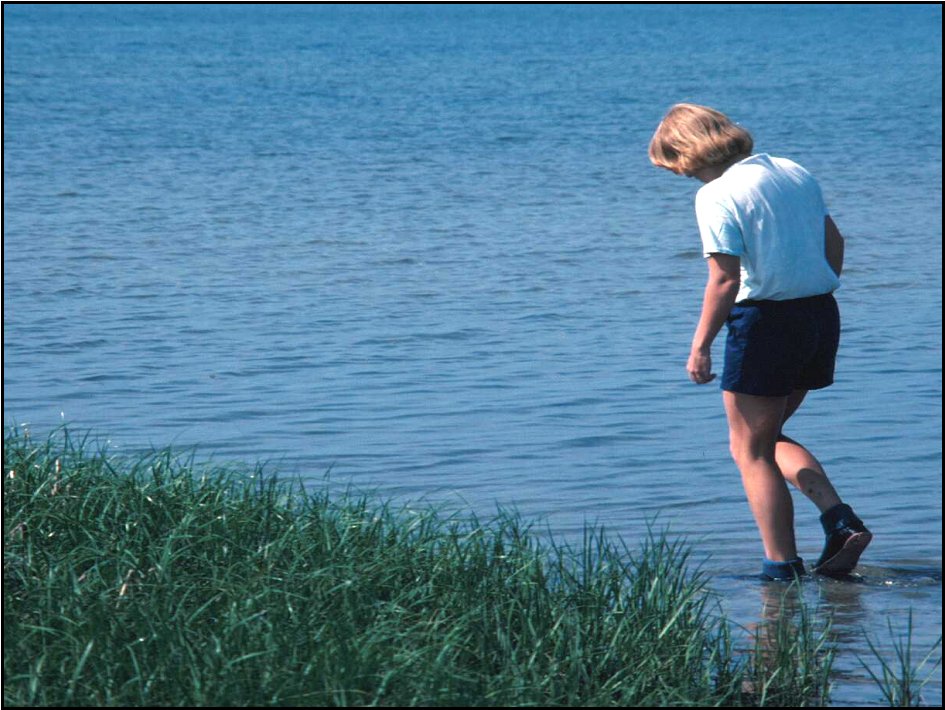

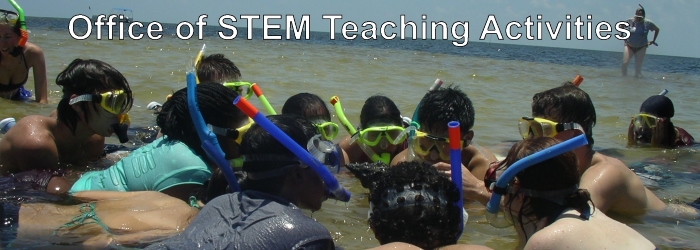
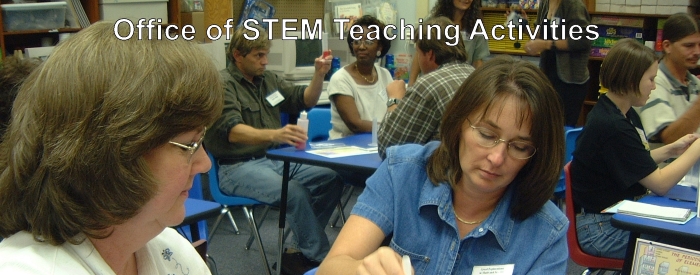
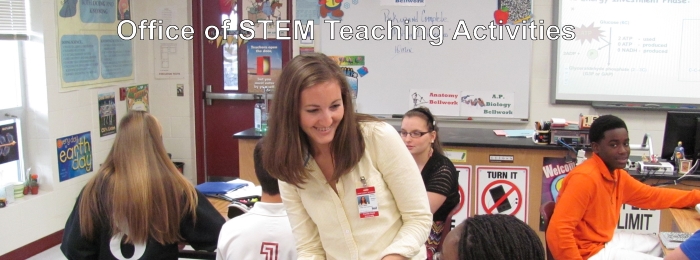
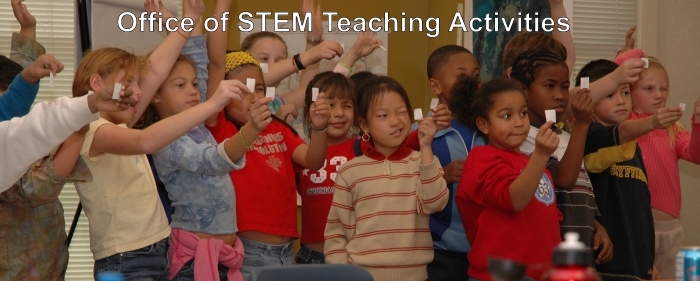
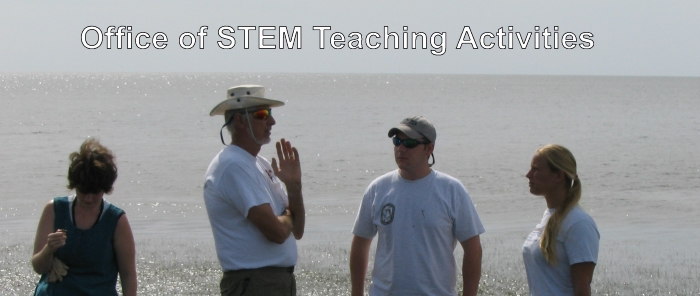
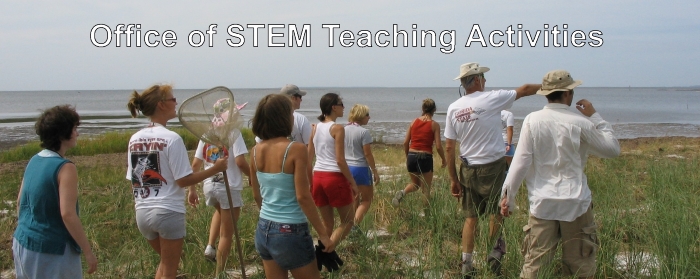
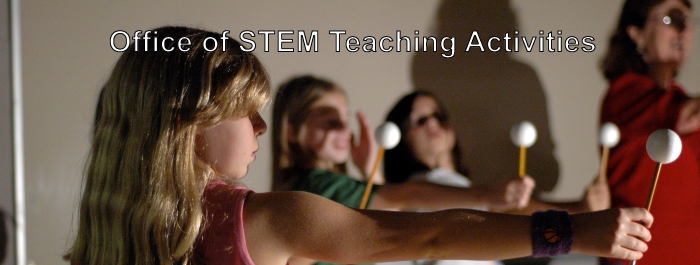
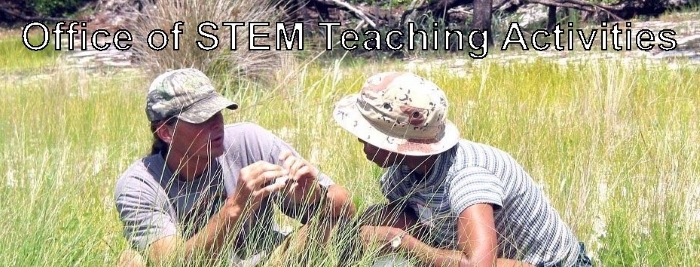
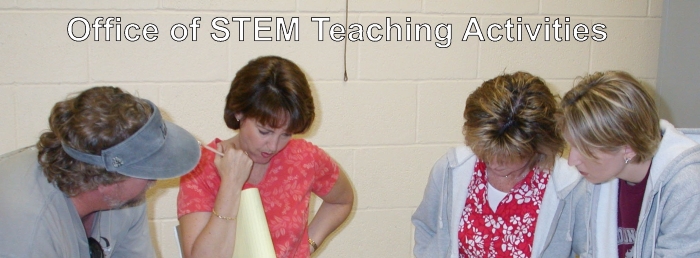
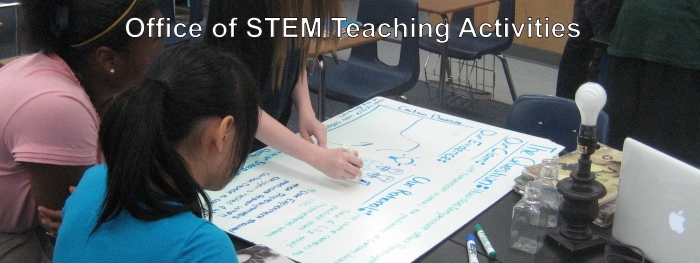





 Analyzing mathematics and science tasks for their level of cognitive demand is an important professional development tool for math and science teachers. This professional development experience introduces participants to the effective Task Analysis technique developed by mathematics researchers Mary Kay Stein and Margaret Smith* as a way to evaluate classroom activities based on how much thinking they require of students. Once they have mastered this technique, teachers can use it as a template to assess their own instructional activities on a regular and continuing basis and to institute changes based on their results. Teachers who are employing high-cognitive demand tasks are more likely to develop the depth of understanding in their students called for by the Common Core State Standards for Mathematics and the national Next Generation Science Standards.
Analyzing mathematics and science tasks for their level of cognitive demand is an important professional development tool for math and science teachers. This professional development experience introduces participants to the effective Task Analysis technique developed by mathematics researchers Mary Kay Stein and Margaret Smith* as a way to evaluate classroom activities based on how much thinking they require of students. Once they have mastered this technique, teachers can use it as a template to assess their own instructional activities on a regular and continuing basis and to institute changes based on their results. Teachers who are employing high-cognitive demand tasks are more likely to develop the depth of understanding in their students called for by the Common Core State Standards for Mathematics and the national Next Generation Science Standards. Teachers will need to change how they teach science to develop science proficient students and meet the national Next Generation Science Standards. Science activities and experiences will need to be more authentic so that students have the opportunity to engage in the practices of science, including scientific thinking. This professional development experience introduces teachers to a way to help their students learn to develop scientific explanations and engage in argument from evidence. The pedagogy and teaching moves that underpin this are then analyzed as teaching practices. In scientific explanation and argumentation activities, teachers must take on a new role, one that may be unfamiliar to many of them, and this workshop will help prepare them to do so.
Teachers will need to change how they teach science to develop science proficient students and meet the national Next Generation Science Standards. Science activities and experiences will need to be more authentic so that students have the opportunity to engage in the practices of science, including scientific thinking. This professional development experience introduces teachers to a way to help their students learn to develop scientific explanations and engage in argument from evidence. The pedagogy and teaching moves that underpin this are then analyzed as teaching practices. In scientific explanation and argumentation activities, teachers must take on a new role, one that may be unfamiliar to many of them, and this workshop will help prepare them to do so.